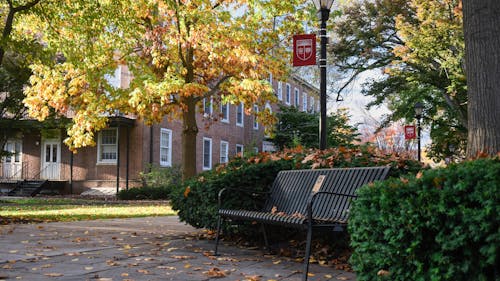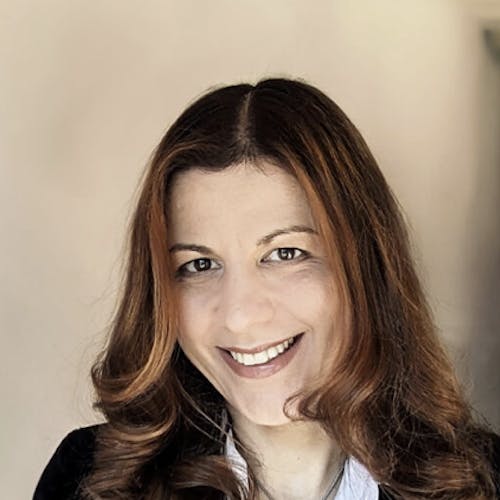Special report: U. closes down Center for Women's Global Leadership

Last month, Rutgers closed down the Center for Women’s Global Leadership (CWGL), citing a lack of funding and donors, according to a statement from the University to The Daily Targum.
Charlotte Bunch, founding director and senior scholar at the CWGL, said the center has sought to incorporate gender equality movements within human rights movements. The work often involves collaboration with other countries and groups like the United Nations (UN).
"(The closure) is a loss for the global women's movement, as well as for students at Rutgers," she said. "People come to Rutgers because it has a reputation for being a strong supporter of work on the rights of women and on human rights."
Bunch said the specialized and managerial aspects of the center are irreplaceable, with the center connecting efforts made by other countries and the UN to students on campus through educational and professional methods.
The center, established in 1989, has created the Global 16 Days Campaign to oppose violence against women in nearly 200 nations, according to its website. The center also works with the Feminist Alliance for Rights to fulfill its 2030 Agenda for Sustainable Development.
Bunch said the first sign that something was changing at CWGL appeared in August, when the center's program director, and subsequently the rest of the staff, were told that they would be terminated due to a restructuring of the center’s operations.
Krishanti Dharmaraj, the CWGL’s former executive director, said the center was notified of staff layoffs less than a month after her departure in late July.
The loss of an executive director created a gap in leadership that made it easier for the University to shut the center down, she said. Dharmaraj said that if the position was filled, the executive director would have been able to advocate against the decision or better communicate with staff.
She said after her departure, she left the center, its donors and the University’s administration with a clear strategy to continue the former's operations. At the time of her departure proposal, Dharmaraj said there was no indication that Rutgers intended to shut down the center.
Bunch said the University then changed course and decided in November that they would be shutting the center down entirely. The center, which was maintained by external funding, no longer had the support it needed from donors to uphold its functions, according to the University’s statement to the Targum.
"Over the past few years, (the center’s) traditional funders have developed other philanthropic priorities and, as a result, have terminated their financial support of CWGL," the statement said. "The center has been unable to identify alternative funding sources, leading to reductions in staffing and programming and finally the decision to discontinue its day-to-day operations."
The center, like others on campus, is responsible for maintaining itself financially, Dharmaraj said. She said no questions were ever raised to her during her tenure about the center’s funding, much of which was provided by the Ford Foundation with consent from the University.
As long as the Ford Foundation’s support continued, she said the University was responsible for providing the center with $100,000 annually, as well as the salary for the center’s office manager. No other positions were funded by Rutgers.
Radhika Balakrishnan, former faculty director for the CWGL, also spoke about the center’s consistency in obtaining funding and said the University only provided the space needed for it to operate. She and other leaders of the center have raised millions of dollars to keep the organization running.
Bunch said multiple grants were ready for use in September, but the Center was told by the University to reject them due to the lack of staff who could conduct events with the funds. She said without accepting those grants, the center was left without a considerable amount of money.
"(President Holloway) says the center could no longer raise money, but that's not really entirely true," Bunch said. "The center was in need of raising more money, but it had grants in the works. And It might have needed to cut back some of its activities, but it certainly wasn't in default."
While communicating with the University, Bunch and Balakrishnan said they received no support or interest in remedying any financial issues. Had they been informed or given the opportunity to do so sooner, Balakrishnan said they believe their donors would have been willing to help.
She said none of the center’s donors want the University or the global feminist movement to lose the center’s legacy. Bunch said there is still an opportunity to obtain funding for the center and some donors are dissatisfied with Rutgers’ actions.
Dharmaraj said the University did not turn in a proposal for a $200,000 grant to fund the Feminist Alliance for Rights, an aforementioned global program led by the CWGL. The University did not inform those involved with the grant that it had not been submitted either.
She said the Feminist Alliance for Rights has also received no communication from the University about where the funding they were receiving through the Ford Foundation would be used, or how their operations should continue after the center’s closure.
Balakrishnan said graduate students who choose to complete research projects on the center's operations would have no clear direction to proceed due to its closure.
"If the University actually understood and cared about women's lives, including the students, female students at Rutgers, they would have come up with a better plan to transition the (CWGL) or to really address problems," Dharmaraj said.
Though Rutgers has closed down the center, Balakrishnan and Bunch have spoken about various initiatives the leaders of the center, as well as other external and on-campus groups, are taking to respond to the situation.
On campus, the Institute for Women’s Leadership (IWL) has proposed a new funding and operational plan, Bunch said. The CWGL is one of many on-campus organizations involved in the IWL Consortium, according to the institution’s website.
This plan would involve the IWL working with various Rutgers administrators and faculty to reinvent how the center operates, Bunch said. Should they succeed and the center reopens, Bunch said she already has support from the Ford Foundation to continue to fund the CWGL.
She said organizations on campus would also be signing a statement on the matter, which aims to convince the University to remodel, rather than suspend, the center.
"(The center’s) not completely closed down yet," she said. "There's still a chance to rebuild … There are a couple of staff people they've kept on that are helping with other things (who) could be asked to maintain the communications of the center with groups around the world."
Balakrishnan said the University is presently inclined to delegate specific tasks carried out by the CWGL to other on-campus institutions and organizations. All three leaders the Targum spoke to said they do not believe other groups can carry out these duties.
Individuals outside of the University have pledged their support for the center online. Joanne Sandler, a senior associate at Gender at Work, created a petition to reopen the center, organically collecting more than 900 signatures so far.
"I think when you see the petition that has been sent to the President, you will see how many people are so passionate about the work of the center," Balakrishnan said. "It's global."



